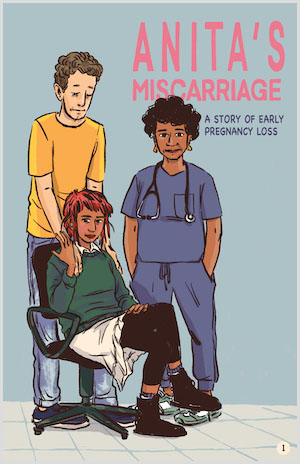Destigmatizing Early Pregnancy Loss: Anita’s Miscarriage Zine
About 1 in 5 women* will experience early pregnancy loss, also known as miscarriage, and often in the first 12 weeks. Pregnant and birthing people face enormous and unacceptable stigma and shame when they experience a pregnancy loss, and are often not encouraged to talk about their loss. This stigma silences people’s voices, leads to isolation and disconnection, and perpetuates a cycle of shame surrounding pregnancy loss.
At RHAP, we believe that every person and family facing an early pregnancy loss should have the facts about what is happening to their bodies, what their options are, and how common an experience this actually is. This is why we developed a zine called Anita’s Miscarriage: A Story of Early Pregnancy Loss, by artist Karina Shor, that follows a couple’s experience with an early pregnancy loss. We created this evidence-based resource to illustrate how talking about an EPL can help break the cycle of silence and shame and support families in beginning to heal from their grief. The zine also talks about the types of EPL management options that can be offered in respectful, dignified, and evidence-based ways, depending on your preferences and needs: expectant management (“watch and wait”), medication management (with mifepristone + misoprostol, or misoprostol alone), and uterine aspiration (outpatient procedure).
Everyone deserves the opportunity to manage their early pregnancy loss in a way that’s best for them. Too often, early pregnancy loss is treated in the ER, when in reality, your primary care clinician can provide you the care and support that you need. This is why we’re committed to improving access to all forms of care within primary care settings through our Miscarriage Care Initiative, research efforts, and patient education resources.
October 15th is Pregnancy and Infant Loss Awareness Day. Join us in working to create a safe, supportive space to elevate people’s stories and experiences and to support clinicians in providing this essential care.
*We recognize that women are not the only people who can have pregnancy experiences. When we refer to women, we are referring to data in studies that only look at cis-gender females and people who identify as women.

